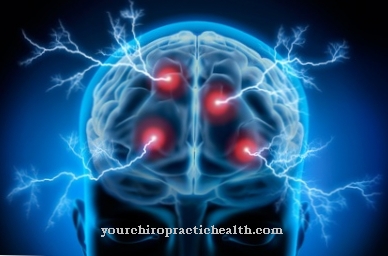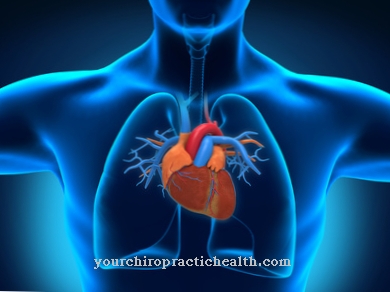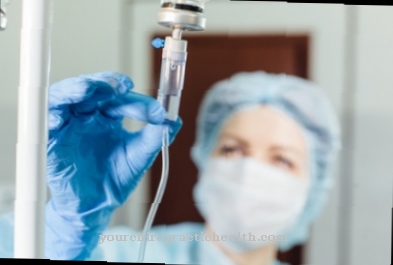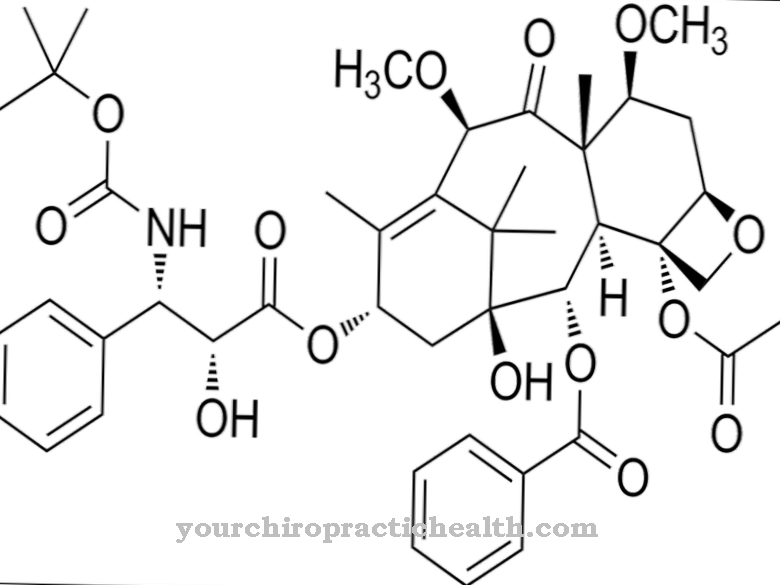A Antidote is an active ingredient that counteracts the effects of another substance in the patient's body. Most often, antidotes are used in the treatment of poisoning.
What is an antidote?
Poisons, as well as chemical substances that are harmful to the human body in high doses, require treatment. In some cases there is no suitable antidote, so the only option is to observe the patient, treat symptomatically and, if possible, intervene if life-threatening or very unpleasant symptoms of poisoning occur.
However, it is better to treat with the appropriate antidote, i.e. with the Antidote. An antidote cancels the effects of the toxin, using various mechanisms. Some antidotes attach to the toxins in the patient's body and thus render their toxic effects harmless, as they can no longer exercise them. Others break down the toxin so that only the antidote remains in the body.
Although an antidote is not toxic to the patient, it is often not entirely harmless. Although it eliminates the much more dangerous poisoning, the administration of an antidote can lead to side effects and symptoms.
Pharmacological effect on the body and organs
A poisonous substance blocks important functions of the body, which is why it is so dangerous for the human organism in the first place. For example, they obstruct the respiratory muscles, switch off digestion or disrupt the healthy function of the heart muscle.
Some poisonings are just unpleasant, but the body usually copes with them on its own - others, in turn, are actually life-threatening because they affect vital organs and processes in the body.
An antidote has very similar effects, but on the toxin and no longer on the patient. In this way, over time, the antidote eliminates the toxic effects of the chemical ingested first. This happens, for example, when the antidote enzymatically catalyzes the toxin or docks with it and thereby blocks chemical processes so that the toxin is no longer toxic and can simply be excreted or broken down by the body. The poisoning of the patient is therefore ended with a sufficiently high amount of an antidote.
Depending on the antidote, a side effect can be that physical functions are attacked by the antidote. As a result, the patient suffers further symptoms from the treatment of a poisoning or an overdose of a drug, which the doctor accepts in order to treat the far more dangerous poisoning.
The treatment of poisoning, for example from snakebites, alcohol or other chemical substances, can lead to side effects such as nausea, vomiting, headache or pain in the affected organs.
Common side effects of treating overdoses of certain drugs with the appropriate antidote can be psychological in nature. These include nervousness, anxiety, or panic attacks. Each antidote is itself a potent chemical with pharmacological activity. This in turn means that the treatment of poisoning does not have to remain symptom-free.
Medical application & use for treatment & prevention
There are roughly two areas of application for antidotes: poisoning and overdose. Poisoning describes the absorption of a substance into the body that damages, hampers or completely suspends its essential functions. This can be life-threatening for the patient if a poison attacks vital organs.
In the case of an overdose, on the other hand, it is a case that the patient has ingested too large amounts of a substance that is not inherently dangerous. It can be an overdose of sleeping pills, psychotropic drugs or even far safer substances such as over-the-counter tablets.
The antidote is usually administered intravenously to the patient so that it quickly gets into the bloodstream and can break down the toxin as quickly as possible before the patient is further harmed. As a preventive measure, antidotes are usually not given, as the patient should try not to get poisoned or overdosed.
Exceptions can exist if the patient is given a drug that cures the underlying disease, but can also have a toxic effect. In these cases, the antidote is sometimes administered at the same time as the drug in order to achieve as much benefit and as little harm as possible. If you know, for example, that the patient could get diarrhea, activated charcoal as an antidote can be administered at the same time to avoid the diarrhea as much as possible.
Risks & side effects
Poisons are highly potent substances that can cause great harm. It is therefore not too surprising that the respective antidote is also highly effective. Almost every antidote has the potential to be toxic in too high a dose, which is why it should be used with caution and after weighing the risks and benefits. If an antidote is dosed too high, there is a risk that it will itself have toxic effects. The patient would have to be treated again.
Each antidote also has a number of side effects, depending on the exact mechanism of action of the substance and its dose. Some antidotes go almost unnoticed as long as they are used in low doses and this is sufficient for treatment. Those that work on the internal organs can cause nausea, vomiting, diarrhea and pain.
Antidotes against psychopharmacologically effective substances tend to trigger psychological side effects such as anxiety or panic attacks. However, the exact side effects vary from antidote to antidote and the patient is informed about them before treatment - or when he is responsive again.












.jpg)



.jpg)










.jpg)
